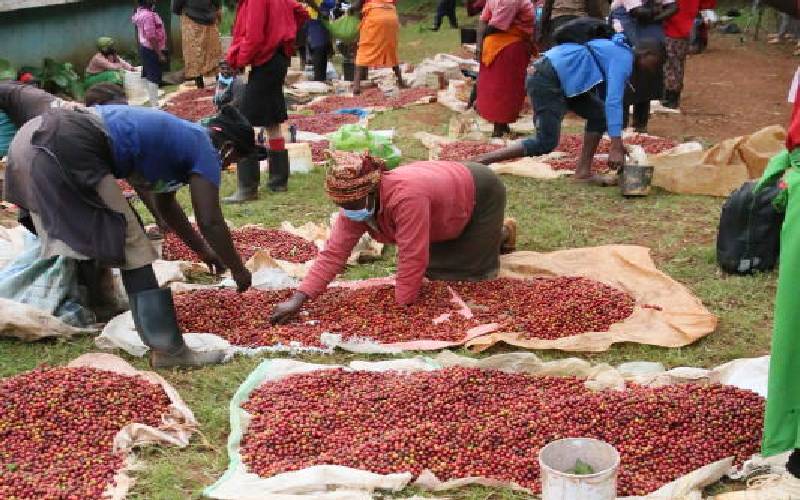×
The Standard e-Paper
Fearless, Trusted News

Coffee farmers sort their cherries at Dedan Kimathi University of Technology's factory last year. [File, Standard]
Coffee farmers are smiling all the way to the bank after harvesting higher-quality berries that fetched higher prices, thanks to heavy rains last year.